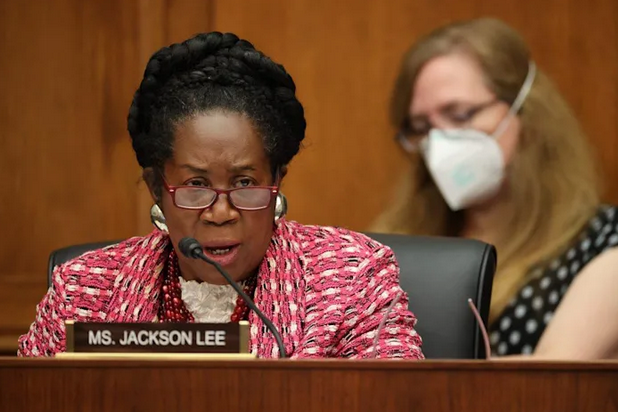
What is H.R. 40 and why is its upcoming review by Congress so important?
The bill, first introduced 30 years ago, would create a commission to study the impacts of slavery and offer federal reparations.
On Wednesday, April 14, a U.S Congressional committee is set to review a bill that would create a commission to study the history of slavery in the United States and recommend “appropriate remedies.”
For decades, lawmakers have been introducing legislation to examine slavery as well as the discrimination faced by the descendants of enslaved Africans.
The bill set to be considered will look at slavery and racial discrimination in the U.S., beginning in 1619 up to the present day, where the impacts are still just as ingrained into society.
House Judiciary Committee Chairman Jerrold Nadler said that the legislation, known as H.R 40, is meant to “reckon with our past and bring us closer to racial understanding and advancement.”
He went on to say that the history of segregation and subjugation of African Americans shaped many of the nation’s policies, values and institutions, leading to disparities within education, housing, insurance, employment, healthcare and other social goods.
Congresswoman Sheila Jackson Lee, the bill’s sponsor, said the bill would allow the country to finally confront “the stark social disparities occurring in the African American community today and provide solutions.”
The commission, if established, would also seek to examine the ways in which federal and state governments supported the institution of slavery as well as laws that discriminated against descendants of enslaved people.
The historic vote on H.R 40 arrives as a movement for reparations is succeeding at state and local levels. Asheville, North Carolina and Evanston, Illinois have already passed legislation to provide financial reparations to their Black residents.
The city of Evanston, Illinois, recently approved what is believed to be the first U.S. government reparations program for Black residents.
— Marketplace (@Marketplace) April 9, 2021
We spoke with the driving force behind this plan, alderman Robin Rue Simmons. https://t.co/vJ8AFDhmPK
Even the Catholic Church joined the movement. Last month, leaders of the Jesuit Conference of Canada and the U.S pledged $100 million in funding as reparations to the descendants of Black people that the order once enslaved and sold.
“The centuries-long injustices of slavery and its legacy, fueling the persistance of racial inequality today, remain largely unaccounted for,” said Dreisen Heath, a racial justice researcher and advocate at Human Rights Watch.
“As states, cities, and other institutions pursue reckonings, Congress should step up to lead the nation in accounting and atoning for the ongoing impact of slavery. The committee vote on H.R 40 is a crucial step in that direction,” Health said.
The late Congressman John Conyers first introduced H.R 40 more than 30 years ago, shortly after the passage of the Civil Liberties Act of 1988, which granted reparations, including cash payments, to Japanese-Americans who were incarcerated and forcibly relocated during World War II.
H.R 40, however, did not gain relevant momentum until 2019, when the House held a second congressional hearing on the bill. Then, in 2020, the bill exploded with support as the pandemic took a disproportionate toll on communities of color and millions of people took to the streets to protest police brutality and systemic racism.
RELATED CONTENT
President Joe Biden recently expressed support for an analysis of reparations, which is in line with one of his 2020 campaign promises.
New: The @ACLU in a new statement is calling on President Joe Biden and Congress to "put their full support" behind H.R. 40 the bill to study reparations. https://t.co/wE7G0MZlTi https://t.co/MQcUELpUb6 pic.twitter.com/1CP0gtNuVK
— Beatrice-Elizabeth Peterson (@MissBeaE) April 9, 2021
In its testimony before Congress in February, Human Watch Rights argued that the passage of H.R 40 is essential, as the full impact of creating laws and policies that forced hundreds of thousands of Africans to be enslaved in the U.S., is a human rights violation that has never been examined, accounted for, or assessed at a national level.
Following the abolition of slavery, several U.S cities and states rushed to enforce white supremacy and racial segregation, passing coercive laws limiting the rights of newly -mancipated African Americans.
Slavery may have ended, but organized racial terror and the dehumanization of Black people in the U.S. never took even a single break. Groups such as the KKK and deputized white mobs wreaked havoc on Black people and communities, causing trauma and damage that authorities often have not done enough to prevent or account for.
This uninhibited violence served to maintain racial social order and impaired Black people’s progress toward equality. Jim Crow laws passed in the 19th and 20th centuries rooted this social norm of discrimination even further.
On this day in 1911, President William Howard Taft expelled Black soldiers from San Antonio, Texas because local officials claimed they threatened “law and order” by protesting Jim Crow laws. To overcome racial inequality, we must confront our history. https://t.co/LRc4Mm0QMF
— Equal Justice Initiative (@eji_org) April 3, 2021
Federal, state, and local policy decisions in the 20th and 21st centuries, like redlining, urban renewal, and highway construction, also contributed to structural racism, paving the way to the present day inequalities in housing, economics, education, employment and more.
To date, 175 representatives have signed on as co-sponsors of H.R 40, and its Senate companion, S. 40, the first reparations bill to be introduced in the Senate since Reconstruction, has 19 co-sponsors.
In his book, We Were Eight Years in Power: An American Tragedy, Ta-Nehisi Coates writes:
“An America that asks what it owes its most vulnerable citizens is improved and humane. An America that looks away is ignoring not just the sins of the past but the sins of the present and the certain sins of the future.”











LEAVE A COMMENT:
Join the discussion! Leave a comment.